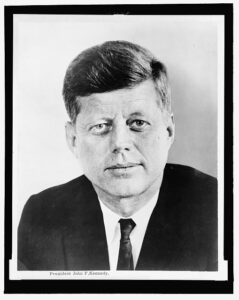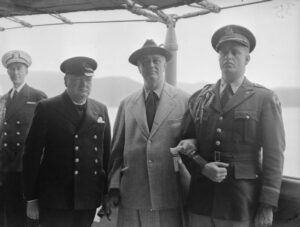FDR and the Outbreak of World War II
Two days after Hitler’s invasion of Poland on September 1, 1939, Britain and France declared war on Germany. Franklin Roosevelt gave a radio address to Americans on the same day, deploring the commencement of war while laying the blame on Nazi aggression. In a careful balancing act, he tried to arouse American indignation at Hitler’s effort to dominate Europe while pledging his adherence to the Neutrality Act passed in 1937. That act had given FDR some flexibility in supporting resistance to Nazi Germany, since it had allowed the sale of arms to Great Britain and France on a “cash and carry” basis (purchasing nations would pay immediately for the arms and would arrange for their transport); but the provision had been written to expire after two years, on May 1. When Hitler had invaded Czechoslovakia in March of 1939, Roosevelt had tried and failed to get the provision renewed. However, on November 4 of 1939, Congress renewed the “cash and carry” provision in a new Neutrality Act—ending the arms embargo with nations fighting Nazi Germany.



